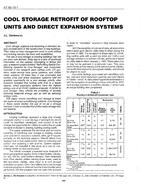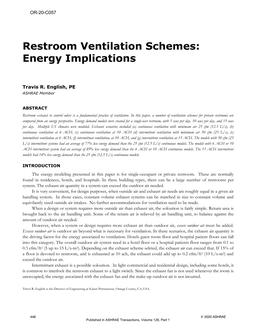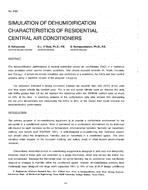Recent standards have defined a lower minimum airvelocity in kitchen exhaust air ducts without compromisingperformance. Steel ducts are usually specified to a standardsteel gage thickness capable of handling the extreme loadconditions of high temperatures, possible corrosive conditions,and negative pressure levels within exhaust duct. Thispaper simulates a typical kitchen exhaust air duct performingunder extreme temperature conditions and low air duct velocities.Lower exhaust air velocities should correspond to lowerin-duct negative pressure values and, therefore, possibly areduction in steel duct wall thickness.
A computational fluid dynamics (CFD)/thermal stressanalysis was carried out under the most extreme load conditionsspecified under recently issued standards. This analysisdemonstrates that a lower-gage steel duct thickness is morethan sufficient than what is specified in recent standards, and,therefore, a lower-gage steel thickness can be used.
Citation: 2016 Annual Conference, St. Louis, MO, Transactions 2016, Vol 122 pt. 2
Product Details
- Published:
- 2016
- Number of Pages:
- 7
- Units of Measure:
- Dual
- File Size:
- 1 file , 2.3 MB
- Product Code(s):
- D-ST-16-001


